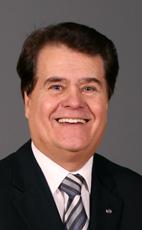Madam Speaker, I am very pleased to speak this afternoon on Motion M-375 moved by the hon. member for Yukon.
More than one million Canadians have some type of surgically implanted medical device. Some implants such as heart valves and pacemakers are life sustaining devices. The recipients will not survive without them. Other implants, such as intraocular lenses, joint replacements and breast prostheses improve the quality of life.
In considering the merits of a registry of implant patients, let me first discuss the question of therapeutic implants.
Recent widely publicized problems with some implants, such as heart valves, pacemakers and teflon coated jaw implants have highlighted the need to track implant recipients so that they can be quickly notified by their physicians in case of serious problems.
A better option would be to set up a national registry of medical devices implanted in the body, similar to the one already in existence in England for high risk cardiac implants.
Such a registry would provide all the required information to track down the patient.
It would also provide additional data needed to develop risk management strategies and valuable feedback, including earlier warnings about device failures to clinicians, manufacturers, Health Canada, and provincial health ministries.
A national registry could be administered by a board of directors made up of representatives from the implanting surgeons, manufacturers, Health Canada, and provincial ministries of health. The board will be responsible for managing the collection, storage, analysis, and dissemination of the data. All information in the registry will be deemed confidential. To protect the privacy of registered patients rules will have to be established by the board of directors for the use and release of information contained in the registry.
There is strong support for the creation of such a registry from the Canadian Orthopaedic Association and the Ontario cardiac care network. Medical device manufacturers have also shown a keen interest, because this registry would allow them to meet mandatory standards on the replacement of medical devices.
In short, what is being suggested is the creation of a new program to improve the follow-up on all implants and medical devices used in the human body.
Since medical services are delivered and funded by the provinces and territories, the authority of the different levels of government to require patients to register or to require surgeons to register their patients will have to be explored, as will the authority to collect change of address information from provincial or federal records. The federal government could coordinate the involvement of provincial health ministries across Canada to ensure that the registry will meet the requirements of all participants.
The major drawback of the establishment of implant registries has been the lack of money. The start-up costs would be about $200,000. These will include the costs to develop the computer database program and data entry forms, negotiating participation in the registry, setting up a board of directors, developing a long-range plan and operating procedures, and establishing longterm funding.
Since about one million Canadians now have implants or medical devices, the annual costs would be $20 million.
Maintenance of a registry of implant patients is estimated to cost about $20 per patient per year. There are approximately one million Canadians with medical device implants, resulting in a total annual cost of $20 million.
Cost sharing will have to be considered with the federal government, the provinces and territories, manufacturers and patients.
The medical device industry and the provincial governments already spend resources on implant monitoring. It may be possible to redirect these funds to a national implant registry.
Let me now address the special case of a registry for breast implant patients.
In 1992 the Minister of Health instituted a moratorium on the use of silicone gel breast implants and commissioned an independent advisory committee to examine their safety. One of the key recommendations made by the committee in April 1992 was to create a national registry of breast implants. The proposal was for a confidential continuing registry of consenting recipients of breast implants in Canada.
Since most cosmetic surgery is not funded by provincial health insurance plans and provinces would therefore not have health records on breast augmentation procedures, the only way to collect information on such patients will be by voluntary participation of the patients.
It was recommended that start-up funding be provided by manufacturers and that the registry be operated by a national not for profit organization.
The initial cost of this national registry could be anywhere between $120,000 and $190,000, with an estimate of 5,000 new patients each year. After that, annual operating costs could be covered by a $10 registration fee.
The drawbacks that will be encountered in setting up a breast implant registry are the difficulty in the collection of patient information and inaccurate patient information, since many breast implant recipients do not know the type of implant they have or the manufacturer. These deficiencies will limit the usefulness of the registry.
After completing its preliminary assessment of the issue, the department believed it was not feasible to implement a breast implant registry for recipients who had surgery more than a few years ago because of the high cost and inherent difficulties in collecting complete and accurate information.
In summary, a registry for patients with therapeutic implants that is funded by provincial health insurance plans will have advantages for federal and provincial regulatory agencies, manufacturers and patients, provided that financial, legal, and organizational problems can be solved.
The benefits of such a national registry would be: a very quick way to trace the women concerned, when problems are discovered following the insertion of such implants; the gathering of useful data on the value of such products for clinical practitioners, manufacturers, Health Canada, as well as the health departments of the provinces and territories. Moreover, it would be possible to analyze the long term evolution of these implants.

